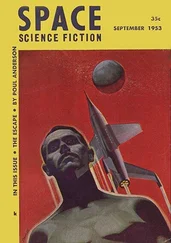It doesn’t matter. Because he’s here. At last. The waiting is over.
Mr. Baynes hurried to the bathroom and prepared to shave.
I have no doubt that Mr. Tagomi will recognize him the moment he meets him, he decided. We can drop the “Mr. Yatabe” cover, now. In fact, we can drop all covers, all pretenses.
As soon as he had shaved, Mr. Baynes hopped into the shower. As water roared around him he sang at the top of his lungs:
“Wer reitet so spat,
Durch Nacht und den Wind?
Es ist der Vater
Mit seinem Kind.”
It is probably too late now for the SD to do anything, he thought. Even if they find out. So perhaps I can cease worrying; at least, the trivial worry. The finite, private worry about my own particular skin.
But as to the rest—we can just begin.
For the Reichs Consul in San Francisco, Freiherr Hugo Reiss, the first business of this particular day was unexpected and distressing. When he arrived at his office he found a visitor waiting already, a large, heavy-jawed, middle-aged man with pocked skin and disapproving scowl that drew his black, tangled eyebrows together. The man rose and made a Partei salute, at the same time murmuring, “Heil.”
Reiss said, “Heil.” He groaned inwardly, but maintained a businesslike formal smile. “Herr Kreuz vom Meere. I am surprised. Won’t you come in?” He unlocked his inner office, wondering where his vice-consul was, and who had let the SD chief in. Anyhow, here the man was. There was nothing to be done.
Following along after him, his hands in the pockets of his dark wool overcoat, Kreuz vom Meere said, “Listen, Freiherr. We located this Abwehr fellow. This Rudolf Wegener. He showed up at an old Abwehr drop we have under surveillance.” Kreuz vom Meere chuckled, showing enormous gold teeth. “And we trailed him back to his hotel.”
“Fine,” Reiss said, noticing that his mail was on his desk. So Pferdehuf was around somewhere. No doubt he had left the office locked to keep the SD chief from a little informal snooping.
“This is important,” Kruez vom Meere said. “I notified Kaltenbrunner about it. Top priority. You’ll probably be getting word from Berlin any time now. Unless those Unratfressers back home get it all mixed up.” He seated himself on the consul’s desk, took a wad of folded paper from his coat pocket, unfolded the paper laboriously, his lips moving. “Cover name is Baynes. Posing as a Swedish industrialist or salesman or something connected with manufacturing. Received phone call this morning at eight-ten from Japanese official regarding appointment at ten-twenty in the Jap’s office. We’re presently trying to trace the call. Probably will have it traced in another half hour. They’ll notify me here.”
“I see,” Reiss said.
“Now, we may pick up this fellow,” Kreuz vom Meere continued. “If we do, we’ll naturally send him back to the Reich aboard the next Lufthansa plane. However, the Japs or Sacramento may protest and try to block it. They’ll protest to you, if they do. In fact, they may bring enormous pressure to bear. And they’ll run a truckload of those Tokkoka toughs to the airport.”
“You can’t keep them from finding out?”
“Too late. He’s on his way to this appointment. We may have to pick him up right there on the spot. Run in, grab him, run out.”
“I don’t like that,” Reiss said. “Suppose his appointment is with some extremely high-place Jap officials? There may be an Emperor’s personal representative in San Francisco, right now. I heard a rumor the other day—”
Kreuz vom Meere interrupted. “It doesn’t matter. He’s a German national. Subject to Reichs law.”
And we know what Reichs law is, Reiss thought.
“I have a Kommando squad ready,” Kreuz vom Meere went on. “Five good men.” He chuckled. “They look like violinists. Nice ascetic faces. Soulful. Maybe like divinity students. They’ll get in. The Japs’ll think they’re a string quartet—”
“Quintet,” Reiss said.
“Yes. They’ll walk right up to the door—they’re dressed just right.” He surveyed the consul. “Pretty much as you are.”
Thank you, Reiss thought.
“Right in plain sight. Broad daylight. Up to this Wegener. Gather around him. Appear to be conferring. Message of importance.” Kreuz vom Meere droned on, while the consul began opening his mail. “No violence. Just, ‘Herr Wegener. Come with us, please. You understand.’ And between the vertebrae of his spine a little shaft. Pump. Upper ganglia paralyzed.”
Reiss nodded.
“Are you listening?”
“ Ganz bestimmt .”
“Then out again. To the car. Back to my office. Japs make a lot of racket. But polite to the last.” Kreuz vom Meere lumbered from the desk to pantomime a Japanese bowing.
“ ‘Most vulgar to deceive us, Herr Kruez vom Meere. However, good-bye, Herr Wegener—’ “
“Baynes,” Reiss said. “Isn’t he using his cover name?”
“Baynes. ‘So sorry to see you go. Plenty more talk maybe next time.’ “ The phone on Reiss’ desk rang, and Kreuz vom Meere ceased his prank. “That may be for me.” He started to answer it; but Reiss stepped to it and took it himself.
“Reiss, here.”
An unfamiliar voice said, “Consul, this is the Ausland Fernsprechamt at Nova Scotia. Transatlantic telephone call for you from Berlin, urgent.”
“All right,” Reiss said.
“Just a moment, Consul.” Faint static, crackles. Then another voice, a woman operator. “Kanzlei.”
“Yes, this is Ausland Fernsprechamt at Nova Scotia. Call for the Reichs Consul H. Reiss, San Francisco; I have the consul on the line.”
“Hold on.” A long pause, during which Reiss continued, with one hand, to inspect his mail. Kreuz vom Meere watched slackly. “Herr Konsul, sorry to take your time.” A man’s voice. The blood in Reiss’ veins instantly stopped its motion. Baritone, cultivated, rolling-out-smooth voice familiar to Reiss. “This is Doktor Goebbels.”
“Yes, Kanzler.” Across from Reiss, Kreuz vom Meere slowly showed a smile. The slack jaw ceased to hang.
“General Heydrich has just asked me to call you. There is an agent of the Abwehr there in San Francisco. His name is Rudolf Wegener. You are to cooperate fully with the police regarding him. There isn’t time to give you details. Simply put your office at their disposal. Ich danke Ihnen sehr dabei .”
“I understand, Herr Kanzler,” Reiss said.
“Good day, Konsul.” The Reichskanzler rang off.
Kreuz vom Meere watched intently as Reiss hung up the phone. “Was I right?”
Reiss shrugged. “No dispute, there.”
“Write out an authorization for us to return this Wegener to Germany forcibly.”
Picking up his pen, Reiss wrote out the authorization, signed it, handed it to the SD chief.
“Thank you,” Kreuz vorn Meere said. “Now, when the Jap authorities call you and complain—”
“If they do.”
Kreuz vom Meere eyed him. “They will. They’ll be here within fifteen minutes of the time we pick this Wegener up.” He had lost his joking, clowning manner.
“No string quintet violinists,” Reiss said.
Kreuz vom Meere did not answer. “We’ll have him sometime this morning, so be ready. You can tell the Japs that he’s a homosexual or a forger, or something like that. Wanted for a major crime back home. Don’t tell them he’s wanted for political crimes. You know they don’t recognize ninety percent of National Socialist law.”
“I know that,” Reiss said. “I know what to do.” He felt irritable and put upon. Went over my head, he said to himself. As usual. Contacted the Chancery. The bastards.
Читать дальше










